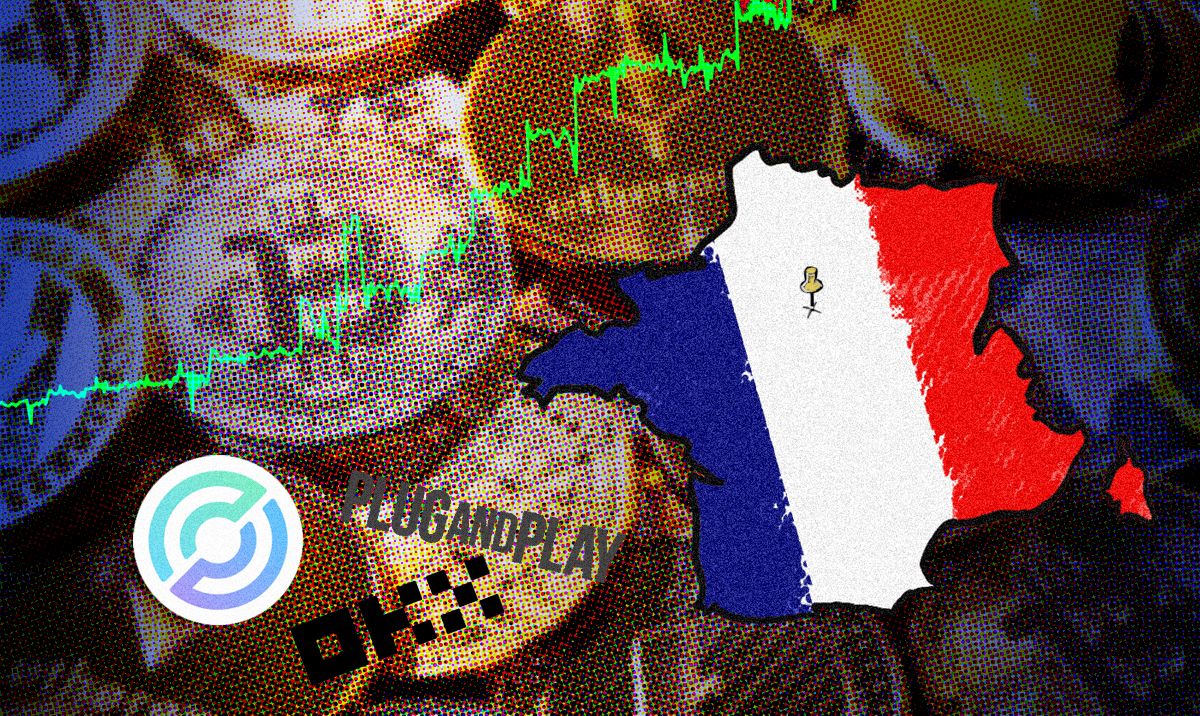
More Firms Choose France
France is becoming a safe haven for firms involved with cryptoassets and blockchain, especially those seeking refuge from regulatory uncertainty in the United States. With officials boasting a regulatory framework that offers relative predictability, crypto and digital assets companies have been enticed to establish hubs and offices in the country, confident in the stability it seems to provide. Dozens of firms have already registered with the AMF ("Autorité des marchés financiers"), the French market regulator.
"In France, we are proud to be pioneers. American players who wish to benefit from the French regime in the short term, and the European arrangements from 2025 onwards, are clearly welcome. We maintain good relations and active discussions with our American counterparts." - says Benoît de Juvigny, Secretary General of the AMF
Circle, the stablecoin giant and USDC issuer, joins other prominent crypto companies, including Binance (which was recently named in an investigation by French authorities) and Crypto.com, in selecting Paris as a major European hub. French digital minister Jean-Noël Barrot attributes Circle's decision to France's efforts to become an attractive place for crypto and blockchain technologies. Circle's CEO, Jeremy Allaire, revealed that the company plans to utilize Paris as a strategic launchpad for expanding its operations within the European Union. With an existing presence in Dublin and London, Circle aims to capitalize on France's favorable business environment for managing their digital assets and launching EUROC, a stablecoin pegged 1:1 to the euro. In April, Circle announced it has submitted applications for licensing as an Electronic Money Institution and registration as a Digital Asset Service Provider (DASP) in France. Circle could become the first company to obtain full authorization under the DASP regulatory framework if successful.
Crypto exchange OKX has also set its sights on France and intends to hire approximately 100 new employees within the next three years. The company announced in May that it has applied to become a registered DASP and aims to establish a significant physical presence in the country. Tim Byun, OKX's head of global government relations, stated that they anticipate hiring about 30 employees in the first year and expect the registration process to span up to six months.
Plug and Play's Crypto and Digital Assets vertical, initially launched in Silicon Valley at the end of 2022 with key partners, is now expanding to Paris, France, the firm announced in a press release at the end of April. The program aims to educate consumer businesses, retailers, and brands on the potential of blockchain technology and facilitate tailored partnerships to enable their transition from Web2 to Web3. With a strong ecosystem built in France over the past six years by its local unit, Plug and Play aims to leverage its track record in guiding enterprises to embrace the right technologies and seize opportunities in the Web3 landscape.
Tighter Rules but Crypto-Friendly
France remains welcoming to investors and crypto firms, despite the AMF tightening regulations to ensure a safe space for users and investors.
Earlier this year, the French National Assembly granted approval to a series of more stringent regulations for crypto companies. The package incorporates EU laws and introduces an amendment that imposes stricter requirements on new entrants seeking to participate in the French crypto market. However, companies that had already chosen the simplified registration process under the existing two-tier system will remain unaffected by the new regulations until the implementation of Europe-wide rules.
As we mentioned in our last update, the French authorities have been focusing on decentralized finance (DeFi). In its annual 2022 report published on June 1st, the AMF ombudsman acknowledged the growing interest in crypto-related ventures as well as the difficulties it faces in regulating the sector. While the overall caseload of the ombudsman witnessed a slight decline, mediation requests associated with digital assets exhibited a significant upward trend. The reported data indicates an increase from 44 cases in 2021 to 54 cases in 2022, highlighting the growing demand for conflict resolution in the sector. Additionally, the report underscores a notable surge in the number of registered DASPs in 2022, soaring from 28 to 59, illustrating the expanding footprint of digital asset services within France.
The AMF's proactive approach reflects its commitment to ensuring a secure and transparent environment for digital asset activities: to meet the growing demand for effective oversight, the regulator has revealed plans to strengthen the registration requirements for DASPs starting in July. This coincides with the forthcoming implementation of the Markets in Crypto-Assets (MiCA) legislation, which aims to establish a comprehensive regulatory framework for digital assets across the EU. By aligning regulations and enhancing safeguards for investors, the MiCA legislation seeks to promote fair competition and bolster the integrity of the market.
The recent developments in France's crypto hub demonstrate the country's increasing focus on harnessing the potential of blockchain technology and digital assets. With companies and institutions actively exploring opportunities in this space, France is positioning itself as a forward-thinking player in the global crypto landscape. As the industry continues to evolve, it will be fascinating to observe how France further establishes itself as a leader in this rapidly changing field, driving economic growth and fostering innovation in the sector.

